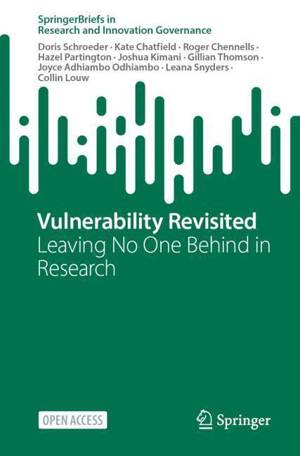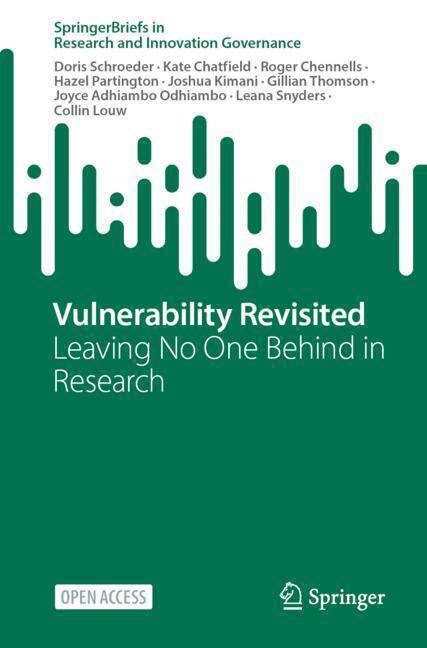
- Afhalen na 1 uur in een winkel met voorraad
- Gratis thuislevering in België vanaf € 30
- Ruim aanbod met 7 miljoen producten
- Afhalen na 1 uur in een winkel met voorraad
- Gratis thuislevering in België vanaf € 30
- Ruim aanbod met 7 miljoen producten
Vulnerability Revisited
Leaving No One Behind in Research
Doris Schroeder, Kate Chatfield, Roger Chennells, Hazel Partington, Joshua Kimani, Gillian Thomson, Joyce Adhiambo Odhiambo, Leana Snyders, Collin LouwOmschrijving
Open access. This open-access book discusses vulnerability and the protection-inclusion dilemma of including those who suffer from serious poverty, severe stigma, and structural violence in research. Co-written with representatives from indigenous peoples in South Africa and sex workers in Nairobi, the authors come down firmly on the side of inclusion. In the spirit of leaving no one behind in research, the team experimented with data collection methods that prioritize research participant needs over researcher needs. This involved foregoing the collection of personal data and community researchers being involved in all stages of the research. In the process, the term 'vulnerability' was illuminated across significant language barriers as it was defined by indigenous peoples and sex workers themselves. The book describes a potential alternative to exclusion from research that moves away from traditional research methods. By ensuring that the research is led by vulnerable groups for vulnerable groups, it offers an approach that fosters trust and collaboration with benefits for the community researchers, the wider community as well as research academics.
Those living in low-income settings, in dire situations that are summarized with the term 'vulnerability' know best what their problems are and which priorities they have. To exclude them from research for their own protection is a patronizing approach which insinuates that researchers and research ethics committees know best. The team from this book have shown that minimally risky and minimally burdensome research tailored towards the needs of highly marginalized and stigmatized communities can be scientifically valuable as well as inclusive and equitable. I congratulate them.
Prof. Klaus Leisinger, President Global Values Alliance, Former personal advisor to Kofi Annan on corporate responsibility
Specificaties
Betrokkenen
- Auteur(s):
- Uitgeverij:
Inhoud
- Aantal bladzijden:
- 145
- Taal:
- Engels
- Reeks:
Eigenschappen
- Productcode (EAN):
- 9783031578953
- Verschijningsdatum:
- 1/05/2024
- Uitvoering:
- Paperback
- Formaat:
- Trade paperback (VS)
- Afmetingen:
- 156 mm x 234 mm
- Gewicht:
- 244 g

Alleen bij Standaard Boekhandel
Beoordelingen
We publiceren alleen reviews die voldoen aan de voorwaarden voor reviews. Bekijk onze voorwaarden voor reviews.











